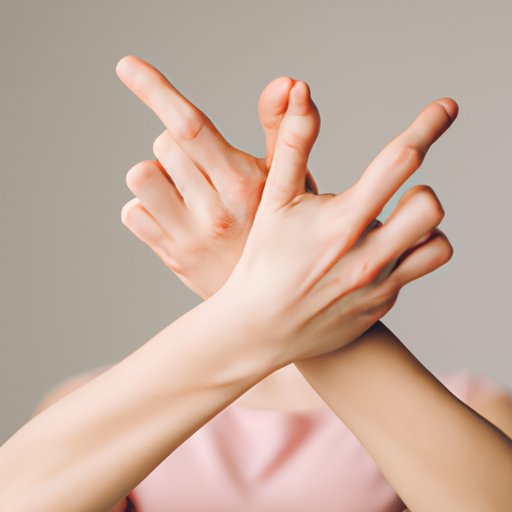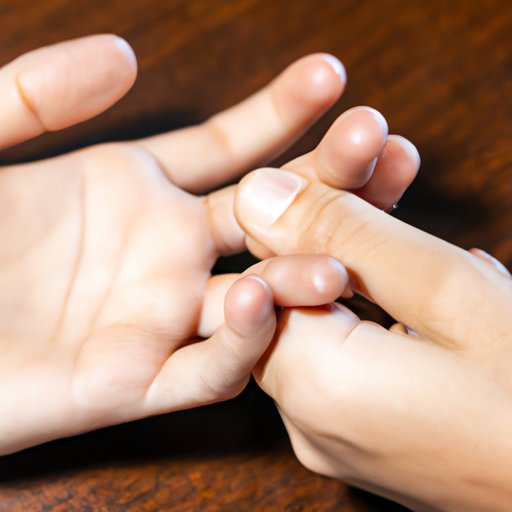
Introduction
Numbness in fingers can be a frustrating and alarming sensation, often indicating poor circulation, nerve damage, or other underlying conditions. It’s important to address this issue promptly to alleviate discomfort and prevent potential complications. Fortunately, there are many effective remedies and lifestyle changes that can help reduce or even eliminate numbness in fingers. In this article, we’ll explore various home remedies, exercises, alternative therapies, and warning signs for consulting a doctor.
Common causes of numbness in fingers
In order to effectively treat numbness in fingers, it’s important to understand the potential underlying causes. Some common causes of finger numbness include poor circulation, nerve damage, injury, or medical conditions like carpal tunnel syndrome. Poor circulation can result from a sedentary lifestyle, smoking, or underlying medical conditions like diabetes or Raynaud’s disease. Nerve damage can be caused by trauma, repetitive motion, or certain medical conditions like multiple sclerosis or peripheral neuropathy. Injury to the hand or arm can cause swelling or compression of nerves, leading to numbness. Medical conditions like carpal tunnel syndrome, arthritis, or hypothyroidism can also affect the nerves and blood vessels in the hands and fingers, leading to numbness or tingling sensations.
Home remedies for relieving numbness in fingers
If your finger numbness is caused by mild or temporary factors, such as poor posture or cold weather, there are several simple and cost-effective remedies you can try at home. Rubbing your hands together briskly can increase blood flow and stimulate circulation, while stretching or gently massaging your fingers can relieve tension and improve flexibility. Soaking your hands in warm water for 10-15 minutes can also help alleviate numbness and swelling. Be sure to avoid hot water, which can cause burns or further damage.
Exercises for relieving numbness in fingers
Regular exercise can help improve circulation, strengthen muscles, and alleviate stiffness or pain in the hands and fingers. Try simple exercises like rolling a small ball or gripping a soft foam ball, squeezing a stress ball, or stretching your fingers wide apart and then releasing them. Other exercises include finger tapping, finger lifts, and thumb-to-finger touch. Perform these exercises for 5-10 minutes several times a day, and gradually increase the intensity or duration as your fingers become stronger and more flexible.

Alternative therapies for relieving numbness in fingers
Acupuncture and acupressure are ancient healing techniques that can help re-balance the body’s energy flow and reduce numbness and other symptoms. Acupuncture involves the use of thin needles inserted into specific points along the body’s meridians, while acupressure stimulates these points through massage or pressure. Essential oils like peppermint, lavender, or ginger can also be used to improve blood flow, reduce inflammation, and alleviate pain or discomfort. Be sure to consult a qualified practitioner or physician before trying these therapies.
Lifestyle changes for reducing numbness in fingers
Simple lifestyle changes can also help reduce numbness and prevent it from recurring. Improving posture by sitting or standing up straight and avoiding hunching or slouching can reduce pressure on the nerves and improve circulation. Maintaining a healthy weight by exercising regularly and eating a balanced diet can also reduce the risk of developing conditions like diabetes or hypertension that can cause numbness. Quitting smoking can improve circulation and reduce the risk of developing peripheral artery disease, a common cause of numbness in the hands and feet.
When to seek medical help for numbness in fingers
Although most cases of finger numbness can be treated at home or with lifestyle changes, there are some warning signs that may indicate a more serious underlying condition. Persistent or worsening numbness, weakness or paralysis, or loss of bladder or bowel control may be signs of a more serious condition, and should be evaluated by a doctor as soon as possible. Diagnostic tests like X-rays, EMG (electromyography), or nerve conduction studies may be used to determine the cause of the numbness. Treatments may include medications, physical therapy, or surgery, depending on the underlying cause of the symptoms.
Conclusion
Numbness in fingers can be a frustrating and uncomfortable sensation, but there are many effective ways to address it. By trying various home remedies, exercises, alternative therapies, and lifestyle changes, you can reduce or eliminate numbness and improve your overall hand and finger health. However, it’s important to seek medical attention if you experience any warning signs or persistent symptoms. With a little persistence and patience, you can find the best solution for your individual case and regain your finger mobility and dexterity.





